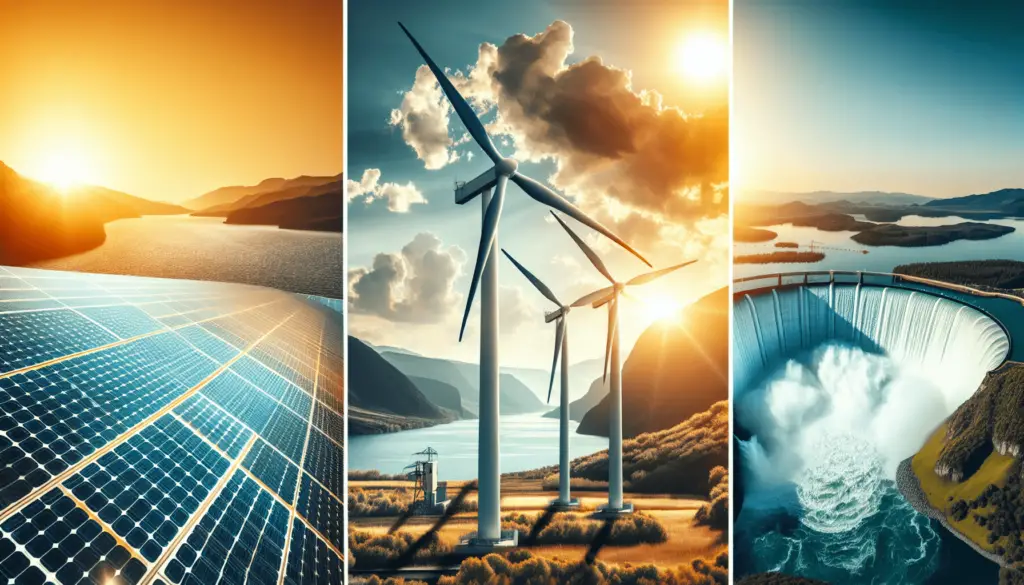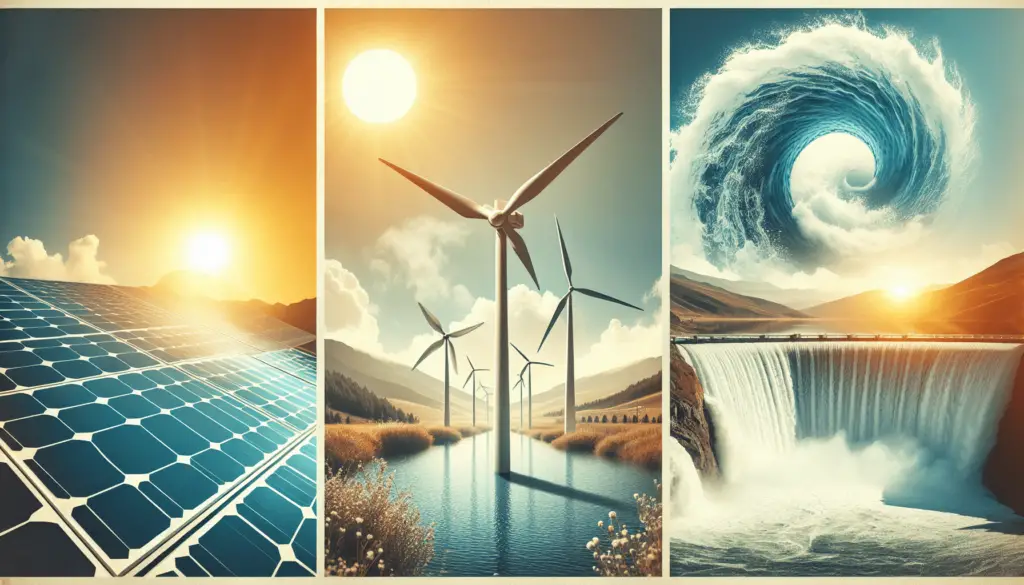Are you looking for sustainable energy solutions?
If you are interested in reducing your carbon footprint and contributing to a cleaner planet, sustainable energy solutions might be the way to go. In this article, we will compare three popular renewable energy sources: solar, wind, and hydro power. Each of these options offers unique benefits and considerations. Let’s dive in and explore which one could be the right choice for you!

Understanding Solar Power
Solar power is one of the most popular renewable energy sources used today. It harnesses the energy from the sun and converts it into electricity through the use of solar panels. This type of energy is clean, abundant, and sustainable.
When considering solar power for your home or business, it’s important to take into account the initial investment required for installing solar panels. While this can be a significant upfront cost, many governments offer incentives and rebates to help offset the expense. Additionally, solar panels have a long lifespan and require minimal maintenance, making them a cost-effective option in the long run.
Exploring Wind Power
Wind power is another renewable energy source that has gained popularity in recent years. Wind turbines are used to capture the kinetic energy of the wind and convert it into electricity. This type of energy is clean, abundant, and reliable, as long as there is a consistent wind source.
When considering wind power, it’s crucial to assess the wind potential of your location. Wind turbines are most effective in areas with strong and consistent winds. Additionally, the initial installation cost of wind turbines can be higher than other renewable energy sources. However, with proper maintenance, wind power can provide a significant return on investment over time.
Delving into Hydro Power
Hydro power, also known as hydropower, is generated by harnessing the energy from moving water. This can be achieved through the use of dams, water wheels, or turbines. Hydro power is a clean and reliable energy source that has been used for centuries.
When considering hydro power, it’s essential to evaluate the water resources available in your area. Hydro power is most effective in regions with flowing water, such as rivers or streams. While the initial construction of a hydroelectric facility can be costly, the operational and maintenance costs are relatively low. This makes hydro power a long-term cost-effective solution for generating electricity.
Comparing Solar, Wind, and Hydro Power
To help you make an informed decision, let’s compare solar, wind, and hydro power across several key factors.
| Factor | Solar Power | Wind Power | Hydro Power |
|---|---|---|---|
| Initial Cost | Moderate | High | High |
| Maintenance | Low | Moderate | Low |
| Reliability | High | Moderate | High |
| Efficiency | Moderate | High | High |
| Availability | Wide | Limited | Limited |
| Environmental Impact | Low | Low | Moderate |
As you can see from the table above, each renewable energy source has its own set of advantages and challenges. Solar power offers a cost-effective solution with minimal maintenance requirements. Wind power is reliable and efficient but requires a strong wind source. Hydro power is a clean and reliable energy source but is dependent on water resources.

Choosing the Right Sustainable Energy Solution
When it comes to choosing the right sustainable energy solution for your needs, there are a few key factors to consider.
First, assess the natural resources available in your area. If you live in a region with ample sunlight, solar power might be the best option for you. If you have consistent wind speeds, wind power could be the way to go. If you have access to flowing water, hydro power might be the most suitable choice.
Second, consider your energy needs and usage patterns. Solar power is a great option for generating electricity for residential homes, while wind power is ideal for larger-scale applications. Hydro power is often used for generating electricity for communities and industries.
Finally, evaluate the initial investment and long-term costs associated with each renewable energy source. While solar power might have a lower initial cost, wind and hydro power can provide a higher return on investment over time.
Conclusion
In conclusion, sustainable energy solutions offer a cleaner and more environmentally friendly alternative to traditional energy sources. Solar, wind, and hydro power each have their own unique benefits and considerations. By assessing your location, energy needs, and budget, you can choose the right sustainable energy solution for you.
Remember, making the switch to renewable energy not only benefits the environment but can also lead to long-term cost savings. So, why not take the first step towards a greener future today?
